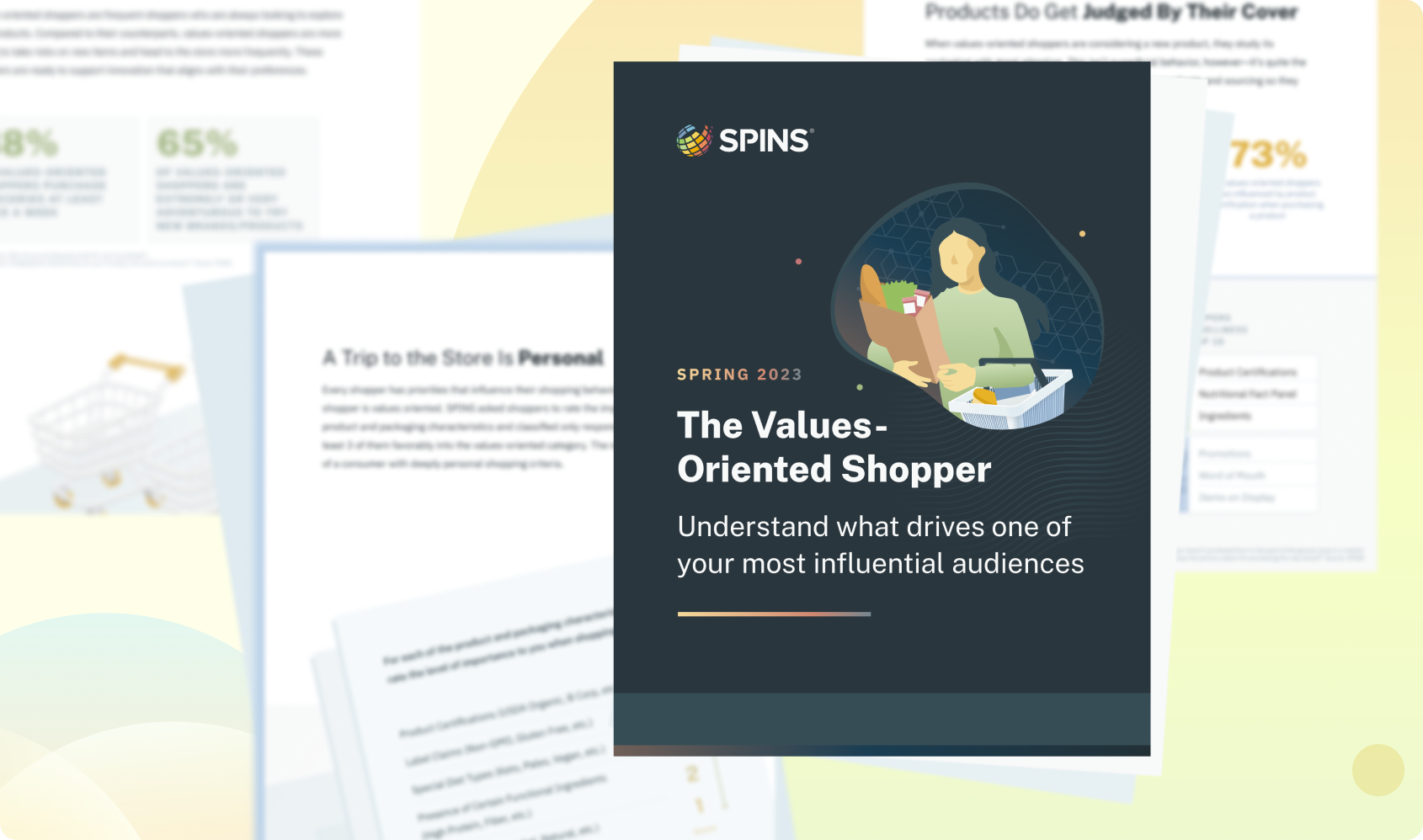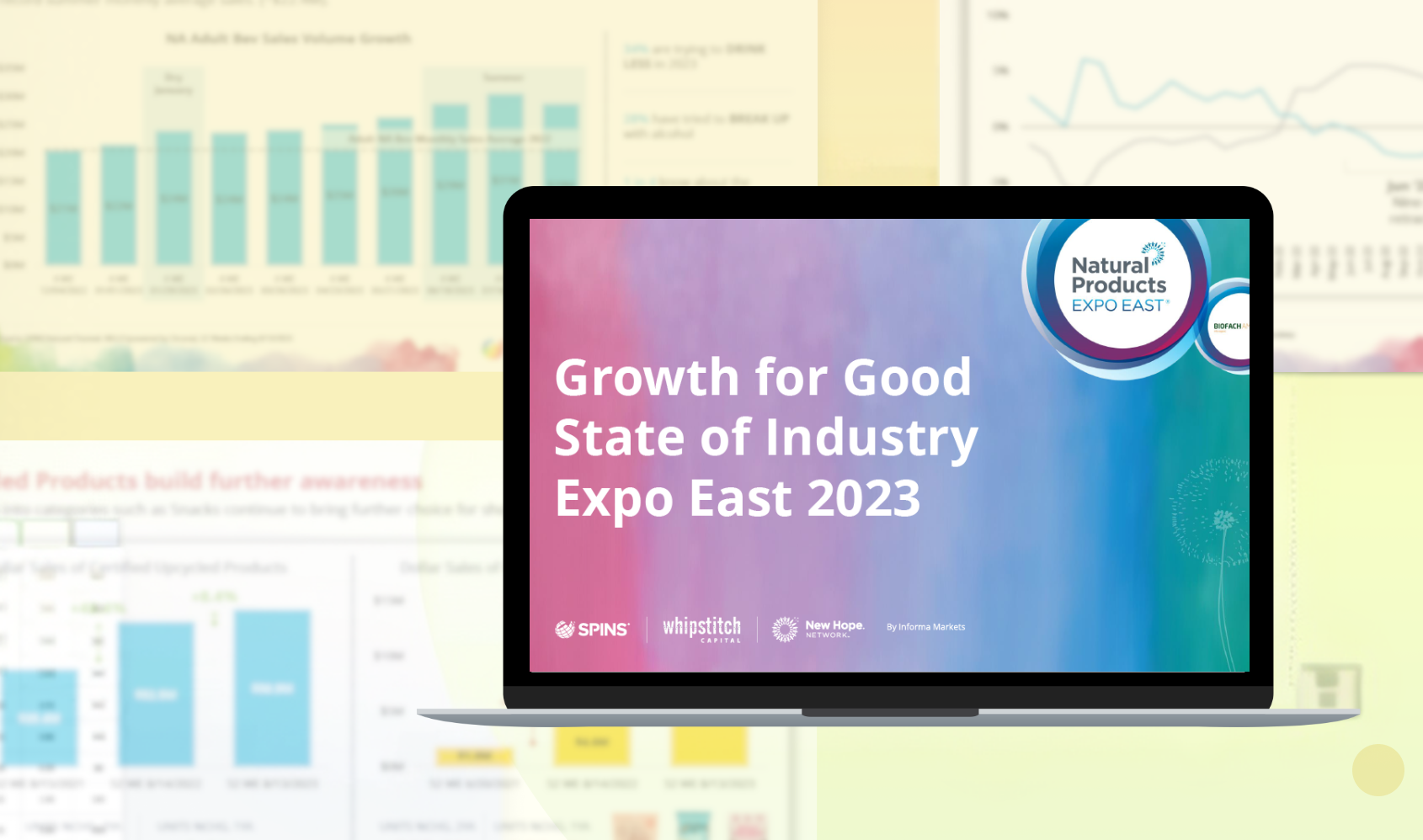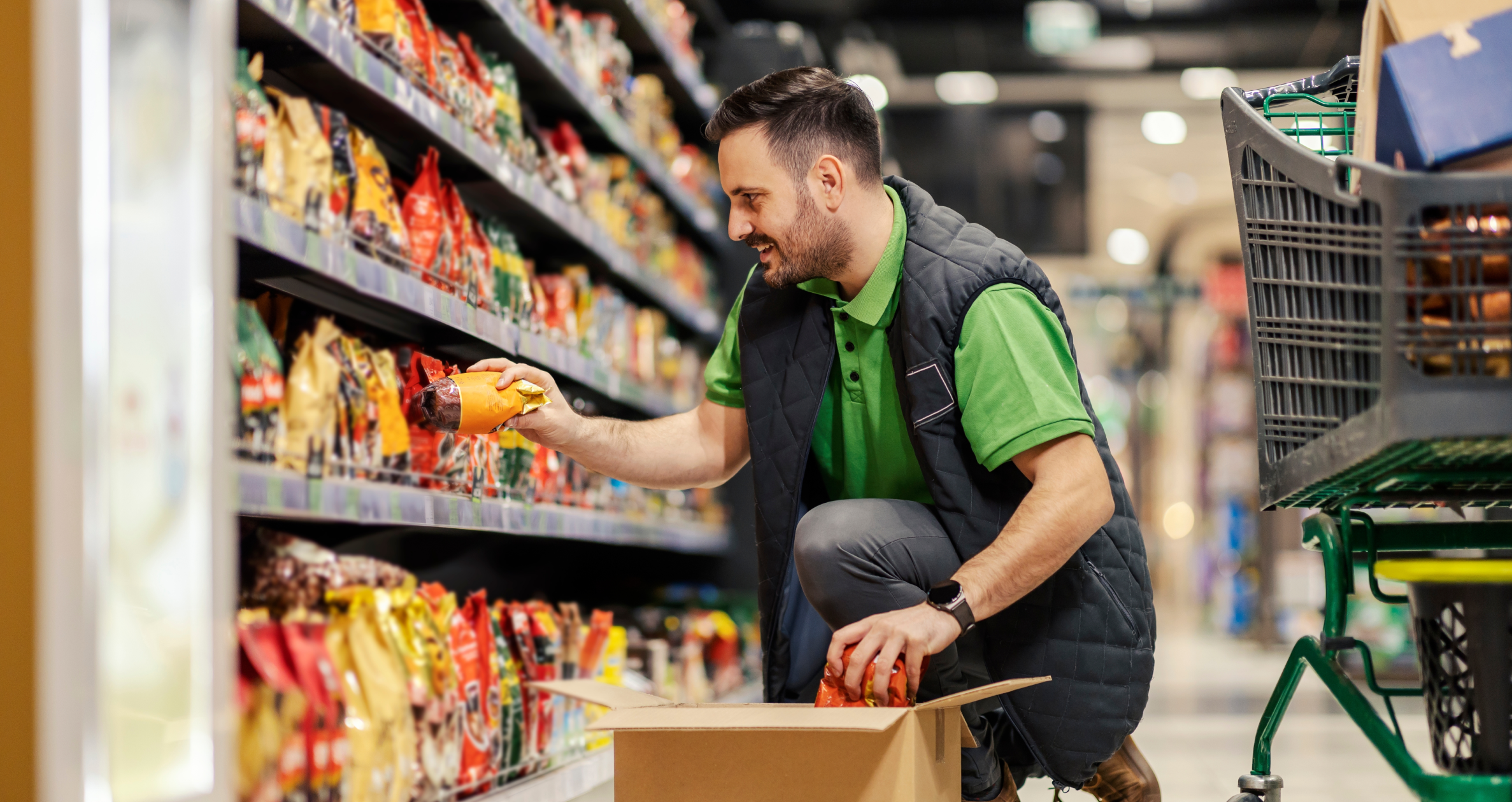A Q&A With Jay Margolis about innovation
Last month, the Natural Products Expo East took over the Pennsylvania Convention Center for the last time (and a new event for 2024 was announced). Attendees from all over the world had the opportunity to sample the latest innovative natural products and preview the emerging trends that will reshape the industry. It was also the first Expo for Jay Margolis, SPINS’ new CEO. Jay sat down to give his impressions of his first Expo and what they say about the future of natural products and the CPG industry.
Last month, the Natural Products Expo East took over the Pennsylvania Convention Center for the last time (and a new event for 2024 was announced). Attendees from all over the world had the opportunity to sample the latest innovative natural products and preview the emerging trends that will reshape the industry. It was also the first Expo for Jay Margolis, SPINS’ new CEO. Jay sat down to give his impressions of his first Expo and what they say about the future of natural products and the CPG industry.
Q: Now that you’ve attended your first Expo, what are your initial takeaways?
It was equal parts energizing and inspirational. On the inspirational side, I had a chance to engage directly with many founders and CEOs who all have meaningful reasons for being in the natural industry. They are not driven to just create any business—they are rooted in a passion, a familial need, an allergy or health concern, and/or in a commitment to the environment.
On the energizing side, the way people reacted to SPINS felt great. Our ability to engage and help customers launch, innovate, get to the next tier of growth, and deliver value is unparalleled. The people working hard at these brands genuinely appreciate our commitment to their success and are excited about the insights that we can give them in our partnership.
“A meal isn’t just a meal anymore; it’s a way for a person to embody their chosen lifestyle.”
Q: Which trends on the show floor have you most excited about the state of the industry right now?
First, plant-based is near and dear to my heart, and I’m encouraged by how many brands are pushing the envelope in this area instead of simply trying to replace existing animal-based foods. I saw row after row of new products that are the result of true innovation. That kind of creativity is going to transform the category to appeal to an even wider audience and prove that consumers are looking for more than just meat replacements.
The second point of interest is how many brands are reimagining foods that we all grew up with but with a cleaner label. I talked to several founders who wanted to enjoy the same tastes and flavors of classic candies and snacks without giving up on their commitment to better for you. They managed to keep the ingredients list natural and small—we’re talking 4 or 5 ingredients—and still satisfy your sweet tooth. When brands focus on these better-for-you recipes, you can taste it in the food.
Q: Did you find any new products or types of products that you’re looking forward to integrating into your routine?
We tend to seek out quite a bit of innovation in our household already, and as avid runners, we are always seeking the right set of recovery tools. Many of the new recovery and performance drinks I sampled at Expo East had nontraditional sweeteners, new flavor profiles, and functional ingredients. I sampled products that have turmeric, HMB, and different types of proteins that haven’t traditionally been in our go-to recovery staples that I want to test out at home.
Q: Does this innovation create complexity for brands trying to find their audience?
Not just for brands—but for retailers, too. Innovation often leads everyone to ask, “Where does this go in the store?” Brands want to earn shelf space and position their products for success. Retailers are willing to take a chance, especially if they see the potential for incrementality—how the product brings new consumers, creates new occasions, or meets new needs. I spoke to several brands who were going through this exact dilemma and it’s understandable why they struggle to connect those dots for retailers.
These brands are trying to make the journey from concept to shoppers’ homes when there’s no precedent for where an innovative product belongs on store shelves. That’s when the power of our data begins to take shape for our partners. When a brand comes to us with this growing pain, we start looking for the metrics that retailers will respond to. Source of volume, for example, identifies the items a consumer will swap out of their routine to make place for this new, innovative one. Those insights help brands build the case for placement and give retailers a context for growth. Suddenly, the confusion fades away and they’re speaking the same language.
“[Natural Industry Founders] are not driven to just create any business—they are rooted in a passion, a familial need, an allergy or health concern, and/or in a commitment to the environment.”
Q: You’re passionate about sustainability, which you have said informs your dedication to veganism. What did the new products at Expo tell you about the state of sustainability?
Ingredient sourcing is at an interesting place right now, and I think is at the center of that question. It is clear that manufacturers are thinking about the entire supply chain, and how they can minimize the overall impact of their products on the environment. Consumers, too, are going out of their way to think more deeply about ingredients; they want to know where every part of their food comes from, how it’s sourced, how it’s farmed, how it’s paid for, and how far it travels to get to their plate.
These manufacturers realize that they’re already creating a premium product, so they might as well source premium ingredients that deliver on those customer values. I tried a cold brew tea that is sold as bottled concentrate and, unlike many other teas, it comes from a plant that is native to North America. So not only is the brand separating itself from the usual ready-to-drink and ready-to-brew teas, but it’s also showing their commitment to higher-quality ingredients that require fewer resources to reach customers. All those choices matter to customers and to their enjoyment of the product.
Q: You spent much of your career in the healthcare industry, which is certainly quite different but also shares a focus on leading a better life. Did anything strike you as unique or unexpected about Expo compared to the other shows you’ve attended?
Contrasting this to a healthcare conference—to say it’s night and day is an understatement. The difference is that it’s harder in healthcare to draw a direct line between a conversation and an outcome. Here, it is a much clearer line. I met a customer who was going into a meeting with a leading retailer the next day and they were struggling with some messaging. In 5 minutes, we accessed the relevant data and gave him insights to help create a better conversation with the retailer.
Similarly, innovation happens over the course of decades in healthcare. In the health and wellness CPG space, the pace of innovation is faster and the barrier to entry is lower. I talked to several founders who had a great idea, made the product in their own kitchen, and a year or two later they’re exhibiting it to thousands of attendees. That is unlike anything I’ve seen before.
Q: The boundaries between health and nutrition continue to blur, while natural products expand their reach. What lessons should we take from these shifts?
They are both part of a long-term evolution, not just a passing trend. There has been a lot of talk about the way dietary habits are changing for many reasons. Some people, for example, take medication that alters their appetite and leads to fewer bites of food each day. That means each bite of food needs to serve more purpose than we might typically expect. The prevalence of functional ingredients tells a similar story as consumers seek ways to improve their health and wellness even when they grab a bag of chips. A meal isn’t just a meal anymore; it’s a way for a person to embody their chosen lifestyle.
People are quite adept at trying to understand what they’re putting in their bodies and feeding their families, and it’s why offerings like SPINS Product Intelligence are important—it’s the dictionary for how people think about the food they select and what that means for them and the world around them. I’ve always used the phrase “I vote with my wallet every day based on the products that I buy,” and it’s clear that’s what today’s consumers are doing more and more.







